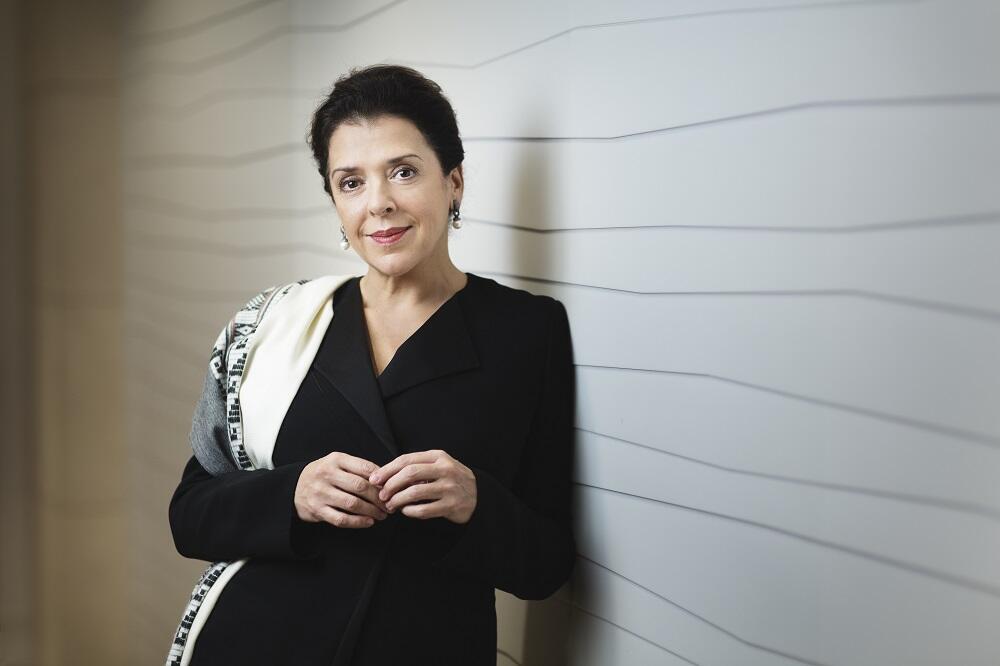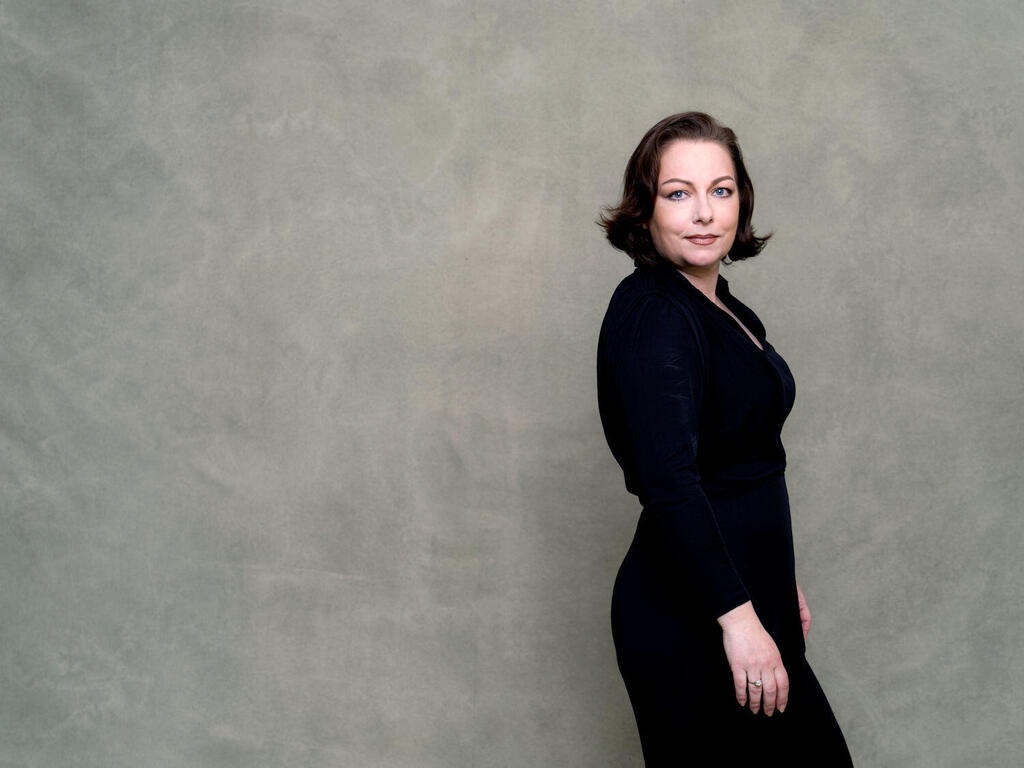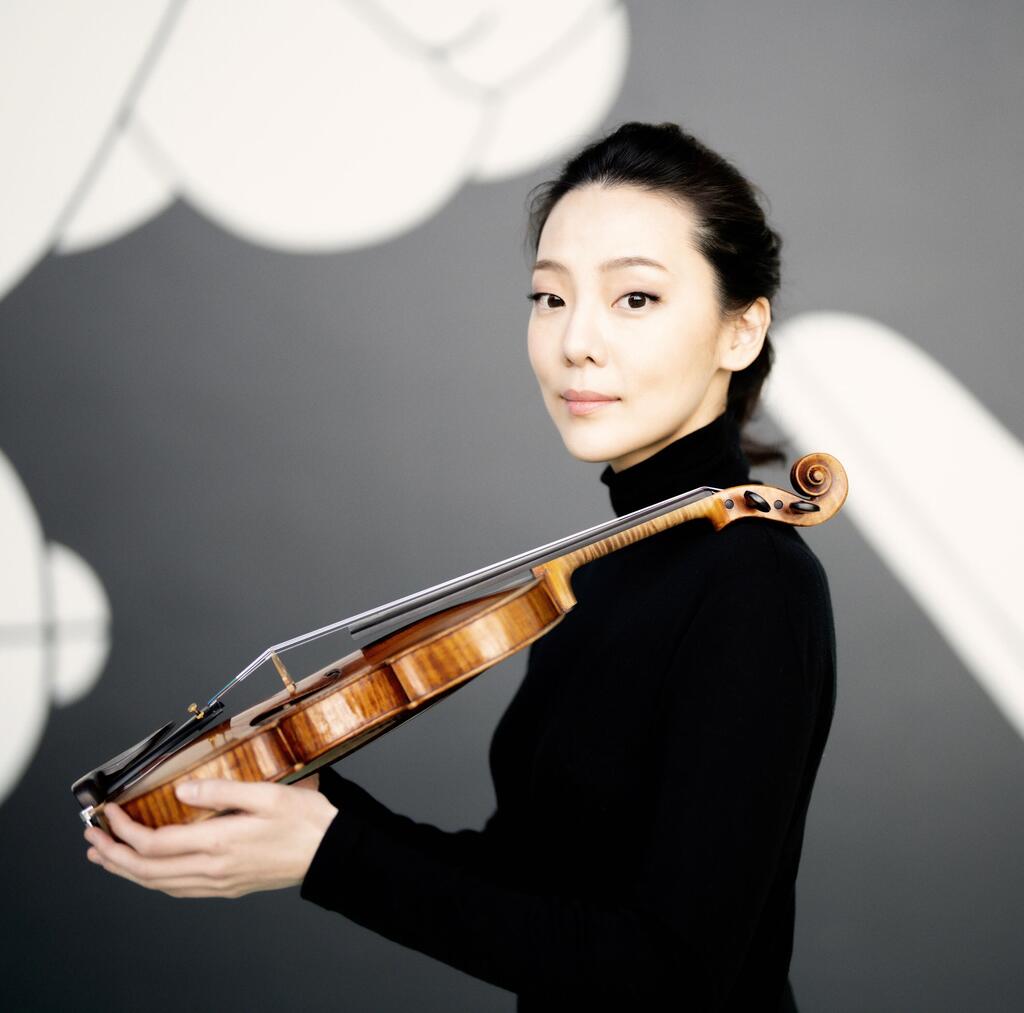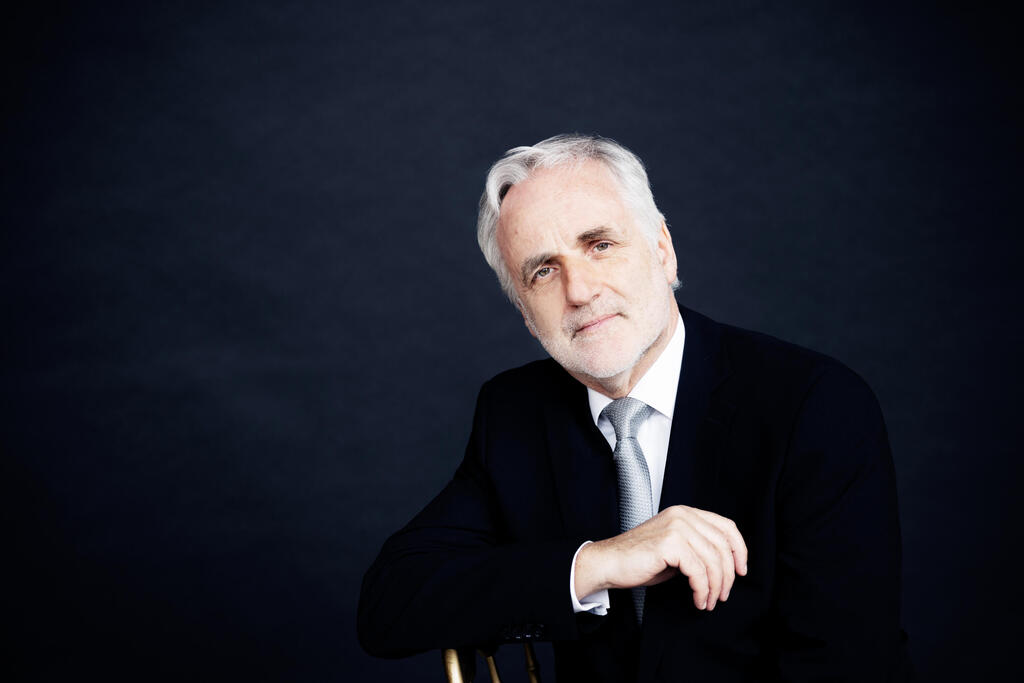Getting your Trinity Audio player ready...
The 26th Jerusalem International Chamber Music Festival concluded on Saturday, capping off five days of exceptional performances that upheld the event's longstanding high standards. The sold-out audience speaks volumes to the festival's enduring success and appeal.
More stories:
Since its inception, the festival has been artistically directed by pianist Elena Bashkirova, who has successfully brought both international virtuosos and younger rising talents to the event.
4 View gallery


Jerusalem International Chamber Music Festival Artistic Director Elena Bashkirova
(Photo: Nikolaj Lund)
Over the years, the festival has featured international stars like violinist Maxim Vengerov, cellist Mischa Maisky and pianists András Schiff, Yefim Bronfman and Martha Argerich, as well as Bashkirova's husband, pianist and conductor Daniel Barenboim.
This year's bill was not short of star power either, with big names such as violinists Renaud Capuçon and Ray Chen, and singer Dorothea Röschmann, but most performers were younger, in their 30s and 40s, and exhibited exceptional skills on the path to international stardom.
It's no small feat to bring such a high caliber and quantity of top musicians to Jerusalem for a week, especially given Israel's problematic political background and international standing. Moreover, everyone who performs at the festival does so for free, except for travel and accommodation expenses.
How, then, does Bashkirova manage to bring such an excellent selection of performers under these modest conditions? Perhaps her husband's global reputation helped in the festival's nascent years. After all, no one would turn down an invitation from him.
However, Bashkirova cemented her position in the international music arena in her own right years ago, in part thanks to the excellent reputation of the festival she founded and has successfully managed for so many years.
Bashkirova doesn't book ready-made ensembles but rather she tailors collaborations between musicians whom she believes will produce particularly interesting performances.
She then invites them to Jerusalem, where they often meet for the first time, rehearse together, hold practice sessions and form an ad-hoc musical collective, crafting unique interpretations of the pieces that Bashkirova picks for them.
For the musicians, this unique model and the collaborative work in a relaxed atmosphere (they stay together at the Mishkenot Sha'ananim guesthouse, facing the walls of the Old City) provide an especially enjoyable musical experience.
This explains in no small part their willingness to perform for free and to stay in Jerusalem for an extended period. Not to mention, it offers a rare opportunity for young, talented musicians to learn from and perform alongside renowned international stars.
Beyond this, the festival has earned a reputation thanks to its audience: mostly Jerusalemites, predominantly seniors and largely festival regulars. These are true music aficionados, skilled in deep listening and intellectually open to unorthodox pieces. They are considered exceptionally attentive and responsive.
Bashkirova and her musicians repay the audience's love with especially highly polished performances, each lasting an exceptional two and a half to three hours—far longer than the norm (and if it were up to me, it would last even longer).
The program includes five chamber pieces for various ensembles, including vocal performances. These aren't hit-ladden crowd pleasers though. On the contrary, Bashkirova doesn't pander to her audience but rather serves them a uniquely fascinating musical feast: an intelligent mix of classic with modern and innovation; of challenging music alongside more accessible pieces.
For example, on the opening day, we heard two works by Gustav Mahler: a Piano Quartet (with star cellist Tim Park and rising violinist Clara-Jumi Kang); and a selection of Rückert songs featuring the renowned German mezzo-soprano Dorothea Röschmann, who has already performed in Israel several times. Incidentally, she was accompanied on the piano by Elena Bashkirova herself.
We also heard two works by Johannes Brahms: a Clarinet Quintet performed relatively infrequently (led by violinist Rainer Honeck, an excellent soloist and former concertmaster of the Vienna Philharmonic). Brahms also provided the "classic and light" element to the concert with his collection of Hungarian Dances.
Alongside these, we heard a wonderful violin sonata by a much lesser-known composer— Mieczysław Weinberg, a Russian Jew of Polish origin. He was a close friend and student of Dmitri Shostakovich.
The sonata was performed by the highly talented young German-Korean violinist Clara-Jumi Kang. To the audience's delight, the second act was slightly more demanding and included less frequently performed works by Arnold Schoenberg, Alban Berg, Béla Bartók and Erich Korngold.
Schoenberg, Korngold and Weinberg were all Jewish composers who fled the Nazis—Weinberg from Poland, and Schoenberg and Korngold from Austria. The former went to Russia, and the latter two to the United States. They are typical examples of immigrant composers, a central theme in this year's festival.
The composers had various reasons for fleeing or emigrating, primarily due to antisemitism, like the Jewish composers who escaped from Europe with the rise of the Nazis; or for political reasons, like the Hungarian Béla Bartók, who was an active anti-fascist and fled to the United States on the eve of World War II.
Sometimes the reason was economic—whether due to financial struggles or financial incentives—like the Czech composer Dvořák who spent years in the United States, or the Swiss (and Jewish) composer Ernest Bloch who settled in the United States in the early 20th century.
Some of these musicians would go on to change the musical landscape to which they migrated. This certainly happened in the United States, which provided refuge for great European composers in the first half of the 20th century.
Rich and sophisticated
Either way, the issue of migration serves as only a slight pretext for the selection of works. The festival's musical curation is robust enough even without this "excuse." In my opinion, the greatness of this festival has always been in its meticulous selection of truly excellent musicians and its original choice of compositions, including material from brilliant but forgotten musicians. These combinations create musical evenings that are sophisticated, rich, challenging and always most enjoyable.
The festival is mainly funded by donations, which among other things allows for relatively reasonable ticket prices for such high-quality performances: NIS 170 per ticket (or NIS 100 for last-minute tickets), and a significant discount for students (NIS 60 per ticket). Unfortunately, even this generous discount hasn't yet managed to attract the young audience we would all like to see in the hall.
A few words about music in this turbulent political era. On the surface, spending an entire evening enjoying music may seem like pure escapism. However, as Yeheskell Beinisch— איק festival's chairman and one of its co-founders—eloquently stated during the opening night: "The festival's very existence at this time is our declaration of solidarity with the struggle for a liberal society that values culture and democracy. By simply holding this festival, we are strengthening the fight for a free society and for a culture that is broad-minded and human-loving."




